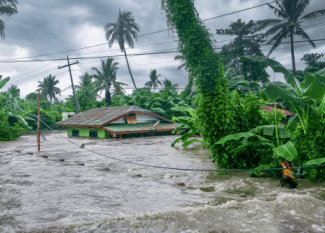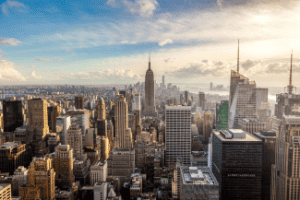Court Decision Strengthens Wetlands Protection
by Louisa May
 I’m often reminded that there are many versions of the truth, and the widely differing points of view highlighted in this lawsuit offer no exception. Sometimes, too, it takes a judge to protect us from each other’s “good” intentions.
I’m often reminded that there are many versions of the truth, and the widely differing points of view highlighted in this lawsuit offer no exception. Sometimes, too, it takes a judge to protect us from each other’s “good” intentions.
On May 27, 2008, U.S District Judge B. Avant Edenfield ruled in favor of Ogeechee-Canoochee Riverkeeper, a citizen based non- profit organization, in a lawsuit filed back in November of 2006 against the U.S Army Corps of Engineers.
This ruling is being hailed as a landmark win for environmentalists. At the very least, the ruling will help protect thousands of wetlands along the Georgia coast and prevent destructive tree harvesting in forested wetlands across the country.
The battle started at Cypress Lake, a several hundred acre, forested lake south of Statesboro, Georgia. Private company owners wanted to cut down about sixty acres of decades old cypress, tupelo, and black gum trees to create open water on a portion of the lake. They planned to shred the trees into garden mulch. It’s their water, right? Wrong. Water rights are not that simple.
First, the Savannah District of the U.S Corps of Engineers was called in to determine if harvesting was allowable. This agency is responsible for carrying out the protection of the federal Clean Water Act. The Clean Water Act requires a permit to discharge pollutants into navigable waters with a narrow exception made for any ongoing silviculture/ tree farming operation. (Tree harvesting creates water pollution.) Any other development that is going to permanently alter wetlands needs a permit, too.
The Army Corps of Engineers gave the owners the go- ahead for the logging without a permit, stating that the operation qualified as tree farming. Their decision was based on the opinion of the Georgia Forestry Commission (GFC) that the natural re-growth of harvested trees “should occur” if the trees are able to regenerate from seed. The GFC explained that the water level in the lake would need to be kept down to allow seed regeneration.
In ponds and lakes that have cypress and other hardwood stands, the trees will not grow back and seedlings will not take root unless the lakes remain drained for several years. This means that Cypress Lake would need to be drained for up to four years. Even then, the trees may not ever grow back.
The permit exemption and resulting concern for preserving the black water Ogeechee River prompted the Southern Environmental Law Center (SELC) and Turner Environmental Law Clinic, on behalf of the Ogeechee-Canoochee Riverkeeper, to file suit against the Corps of Engineers in U.S District Court, Southern District of Georgia, in 2006. An agreement was made with Cypress Lake owners to postpone harvesting until the lawsuit was resolved.
A word about black water rivers, lakes, and swamps: the water is not dirty. Cypress trees drop their feathery needles into the water each fall, when their leaves/ needles have turned brown. The leaves release tannic acid. Tannic acid inhibits the growth of algae in the water, although it turns the water a clear tea color. This creates a healthy habitat for a variety of fish, birds and mammals. And Cypress Lake, Georgia provides a valuable black water playground for not only fish and water fowl but for fishermen and other water enthusiasts.
In the case of Cypress Lake, what the Corps of Engineers failed to recognize was that the owners’ harvesting plans did not include lowering water levels or draining the lake, a requirement made by the GFC to ensure regrowth of trees. Trees would be unable to regenerate from seed. Sixty acres of wildlife habitat could have been permanently lost.
Judge Edenfield ruled that the proposed harvest was not a part of an ongoing tree farming operation and therefore not exempt from Clean Water Act regulations. The plan contained inadequate provisions for regrowth of bottom land forest, a key factor in determining eligibility for a waiver of the Clean Water Act requirements.
Chandra Brown, Executive Director at the Ogeechee-Canoochee Riverkeeper, cheered the decision. “Forestry is one of the biggest land uses in in the Ogeechee Basin. That’s great. We’d like to keep it that way. The problem is we’re seeing the forestry exemption exploited to uses that are not really forestry.”
With this ruling, another step has been taken to protect not only these mysterious, haunting, and hurricane resistant old stands of black water bald cypress, but the wildlife making its habitat in our rivers, streams, and waterways.
Click here for our related feature Myth and Madness Surround Cypress Garden Mulch.
Check out our Green Pages for information on money saving tips that help the environment. Once there, click on the Green Forum to see more articles by our green feature writer Louisa May.
American Apartment Owners Association offers discounts on products and services related to your commercial housing investment, including real estate forms, tenant debt collection, tenant background checks, insurance and financing.
Find out more at www.joinaaoa.org.
To subscribe to our blog, click here.















 Accessibility
Accessibility